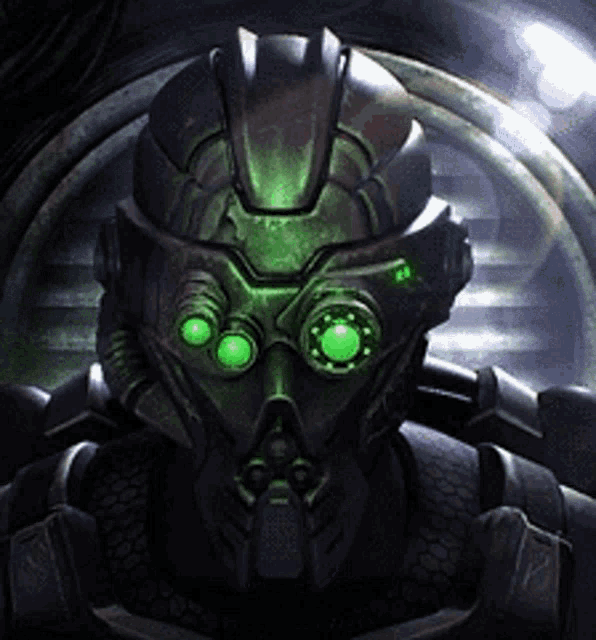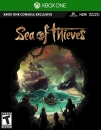I've seen a lot of talk about the console business essentially failing to grow in a long time. It has a relatively stable number of customers, but if you look at the install base for each generation over the last however many years, the needle hasn't moved significantly. Phil Spencer explained Microsoft’s recent layoffs in terms of the industry's failure to grow the gaming audience. Do you agree with that sentiment?
Yeah, well the numbers don't lie. Let's not forget hardware is a messy business. If you extract hardware and look at the P&L (profit and loss) on its own, it's brutal, but it's the facilitator to the software and services that drive the industry. You've got a generation coming through now, and this is the concern maybe Phil's talking about, that’s more likely to be utilizing their smartphone for everything, including gaming.
From the perspective of what the console means, it was a plug and play. It was easy, it was powerful. But it goes back 35, 40 years. What you're now seeing and certainly hearing from a company like Microsoft is, does the cloud replace the need for bespoke hardware? Does streaming change the way we game to the devices that we're now used to, in particular smartphones? I don't think people are gaming less, they're just gaming differently. And more and more you're seeing a generation coming through that is not about to sit down for an evening in front of the television with whatever the game du jour is this week.
And it's always, as we had suggested and thought — maybe feared — going to be snack-size stuff. What can I do in the next 10, 12 minutes? What can I do on my lunch break? And there's so much pressure on the gaming experience from everything else in this world, this unbelievably and perhaps overconnected world dominated by social media content, TikTok videos. Gaming, while still robust — let's not forget, we're probably $200 billion this year — it's fragmented across regions, across different content, and there's only so many hours in a day and there's so many choices for us to use those hours. Information, entertainment, more and more content, YouTube, streaming channels — for me it's Apple TV, Paramount Plus, Peacock, Amazon Prime, go on and go on. And linear television sits in the background now, but with that immense opportunity to sit and gorge on content rather than interact with a console.
The broader picture — and we certainly feared during my time even at Microsoft — we were saying then, in 2007, is this the last console generation? Do televisions start to come with chips that can play games and you just need a controller? Is the PC, as it was then, a renaissance? And why do you need a bespoke piece of hardware that costs us, Microsoft, billions upon billions of dollars to install, and you hope to hell you get an attach rate of software and something out of your Xbox Live, your connected service, that would justify the losses, the hemorrhaging of cash that hardware costs you?
And then you think back now to music and gosh, Zune and iPod — and I go back to Discman and Walkman — bespoke devices that play music. Well, we don't have those anymore. And so now, whatever's streaming out of my phone on Spotify, or I listen to a lot of music on SoundCloud, but I don't have anything that plays music. Somebody gave me a DVD the other day, I have nowhere to actually look at this. Now the smartphone dominates. So gaming isn't immune to these changes in technology and viewing, listening, and playing habits.
And what are we doing? Well, we're not in the living room anymore. We're back in the bedroom with our YouTube influencers, our TikTok creators, and it's about content on demand. And we are going through the same thing in sports. So you're seeing all of these different pressures, if you will, on this next generation that Phil's talking about. Gen Z is coming through and they're going, why do I need to spend four or 500 bucks on a bespoke piece of gaming hardware when I've got my smartphone, or I got my PC or my Mac, and I can do things there with a pretty decent controller?
So I think that's what we're facing. In particular Microsoft with Azure is thinking, are we now finally ready for cloud gaming? Are we finally ready to just crank on our 8K television, get in our gaming menu with 10,000 games available? Who's playing what right now? Click, go, play.
You mentioned that even as early as 2007 internally you were wondering, is this the last console generation?
Yeah, the Xbox 360, during the back end of that. You have that concern. If you were thinking then of something that launched the mid-2000s, what does the end of the decade look like and how long the cycles were — usually five, six years — and what does it look like in five, six years? Are we going to need another? Well, the answer ultimately was yes, but the questions were being asked then. And why? Because you've got faster, cheaper broadband, more ubiquitous in just about everybody's home. I always remember this: you're looking at music and the lessons learned, and all of a sudden streaming of high definition movies was starting to happen as we had those capabilities at home. Again, gaming wasn't immune to this. The thing that kept us going was, games were 30 gigabytes then or 40 gigabytes and music was four megabytes, and a movie you could stream, but it was linear and passive.
Do you think this is the last console generation?
Well, it's a great question already. PS5 saying, yeah, maybe we could sunset this thing, but no mention of a PS6. Now look, Sony is very much a hardware company, so I would say that that's your barometer company. Microsoft, not so much. Microsoft I'm sure would love it if everything moved into the cloud. The only thing that Microsoft doesn't get to play in as well as anybody else is the smartphone business, right? Because that's where Apple, Google, the handset manufacturers will benefit from enormously and they already are. They're making tens of billions of dollars without really trying in gaming with the 30% royalties.
But I think it's a real serious question that's being asked I'm sure in Tokyo, in Redmond, Washington, in Kyoto. That's what everybody's working on right now, because when you start off that next generation, you've got to be ready to absorb billions of dollars in losses. And is the industry, given all the layoffs and everything we're going through right now, is the industry ready for that? Look at Sony laying off 900 people — a lot there in the UK. My two eldest daughters work at EA, they're all right, but they're always looking over their shoulder.
You just never know. And tech broadly, Silicon Valley broadly, you just don't know what's going on anymore as everything evolves and inflation hasn't helped. A lot of companies, gaming companies in particular, did not exit Covid well, hired too aggressively thinking this thing was never going to wind out again. And of course it did. I always call it the Peloton theory of like, oh, we're forever going to be at home and we're forever going to be playing games and jumping on a bike. Well, no, we're not. And if you thought that, as did Peloton, and you geared up for that future, then that's why they're in such a financial mess right now.
So I think that in answer to your question, those are the questions that are being asked right now and it'll all be tied around, do we continue to develop silicon? The role of AI, what does that mean? You can't look away from that. Are these companies willing to go another round of multi-billion? And at the same time you're gearing up for another cycle where gamers may not embrace the console and just say, you know what? I don't need this, times are tough. I've got my phone, I'm enjoying what I've got on my phone. There's plenty of games I can play. Failing that, of course I have my PC or my Mac, I can go do whatever I need to do there. And do I really need to be spending what could be five, $600 on a bespoke piece of hardware just to play games? So both the companies and gamers themselves are asking this question.
Peter, it very much sounds like you are suggesting the era of consoles might be coming to an end.
What I'm saying is the questions are being asked, as they have been for the last 20 years. Are we ready to gird our loins financially for battle and all of the cost of development, silicon development? What is it that PS6 can do that PS5 can’t that would make people jump from PS5, or same with Xbox, same with Switch, right? God forbid it's just incremental. And I think that the companies are also looking at that. What can we do to extend this life cycle?
And then if you're Microsoft and you're Phil Spencer, you've got Satya Nadella coming in and saying, alright, what is the future here and how does this play into the biggest strategy of cloud with Azure, with AI? What are we doing with AI game development? How do you make your games faster, cheaper, with less people? These are all the questions I think are being asked.
We know Nintendo is making a next-generation console. Most people assume Sony will make a PS6. It feels like there are question marks over whether Microsoft has another meaningful generation of Xbox in it, though.
I'm not being a doomsayer. What I think Phil is doing is setting up some smoke signals that we're thinking very differently. And then the idea of, well, we bought Activision Blizzard King, but we may not make those games ultimately exclusive on our platform. There may not be a platform, and we turn into what we really had at our roots, which is a software and services company.
While you were at Sega you witnessed the company go from first-party to third-party after the failure of the Dreamcast. Can you comprehend Microsoft going third-party in the same way?
I think the words first-party and third-party may just disappear. It'll just be, we make great games and we deliver a phenomenal service on which you can play our games, and first-party and third-party, those are legacies of hardware.
I think the question that will be being asked from Nadella and the executive team to Phil is, alright, what we've just given you, whatever it was, $69 billion, but what does the next five to 10 years look like, Phil? What is the long-term strategy? Exactly what's going on right now? And yeah, they'll be like, alright, we're thinking about what the next-generation of hardware could look like. But the challenge will undoubtedly be coming from Nadella: what does it look like without hardware? And so that's going on right now, and, what do we look like if we're more like EA than we are Sony? So that's what I'm sure is going on.
Microsoft recently released some of its exclusives on PlayStation and Nintendo Switch. There are reports Microsoft is considering bringing other, more high-profile games to rival consoles. When you were in charge of Xbox, would you have ever done this? And why do you think Microsoft is doing it now?
I think they're dipping the toes in the water to see how all of this works. And you do it a little bit tentatively and go, all right, let's test the ecosystem here. We're not throwing Halo out there.
I do remember conversations about Halo on PlayStation. You're constantly looking. You get into wargaming, which we did prior to the launch of Xbox 360 as a team. We went away for a couple of days and I played the role of Ken Kutaragi, and this was fascinating to me. McKinsey, the consultancy group, set this up and the idea is you understand your competition a little better when you do some wargames.
My job was, how would PlayStation react to Xbox 360 and what would they do, as they did to me in Dreamcast with the fear, uncertainty, and doubt? We went through two days of this and we learned a lot. It scared us because you're stunned to figure out, well wait, I hadn't thought of that. You mean they might do that to us or this might happen? And so you're constantly thinking about every scenario, as ridiculous or disruptive or radical as it sounds. You have to, absolutely have to.
Once upon a time you stood on a stage and showed the world a Halo 2 tattoo to promote Xbox. Now, do you see Microsoft releasing Halo on PlayStation?
Look, if Microsoft says, wait, we're doing $250 million on our own platforms, but if we then took Halo as, let's call it a third-party, we could do a billion… You got to think long and hard about that, right? I mean, you just got to go, yeah, should it be kept? It's a piece of intellectual property. It's bigger than just a game. And how do you leverage that? Those are the conversations that always happen with, how do you leverage it in everything that we would do?
It's had its ups and downs, but look, Xbox wouldn't be what Xbox is without Halo. But yeah, I'm sure those conversations are happening. Whether they come to fruition, who knows? But they're definitely happening, I'm sure.
Do you think any potential backlash from the hardcore Xbox community at such a decision would make a meaningful difference to Microsoft?
The question would be, ultimately, is that reaction enough not to make a fundamental business decision for the future of not only Microsoft’s business, but gaming in itself? Those hardcore are getting smaller in size and older in age. You've got to cater to the generations that are coming through, because they're going to drive the business over the next 10, 20 years.
Interview With Peter Moore on Xbox









































































